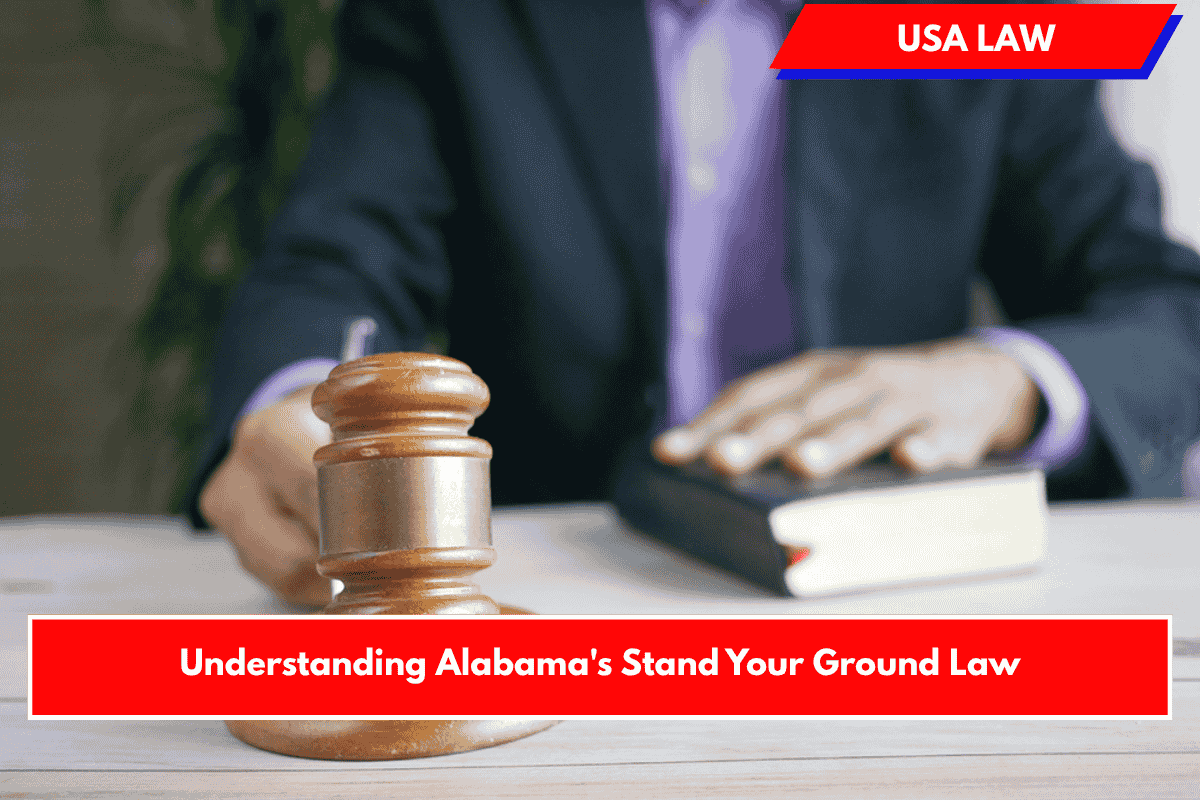Alabama’s Stand Your Ground law is a self-defense statute that allows individuals to use force—including deadly force—to protect themselves or others from imminent harm, without a duty to retreat, as long as certain conditions are met.
Key Provisions of the Law
- No Duty to Retreat:
Individuals are not required to retreat before using force if they are in a place where they have a legal right to be—such as their home, workplace, or a public area. This distinguishes Alabama from states with a “duty to retreat” requirement. - Justification for Use of Force:
The law permits force if the person reasonably believes it is necessary to prevent imminent unlawful force against themselves or another. Deadly force is justified if there is a reasonable belief that someone is using or about to use deadly physical force, or committing certain violent crimes such as burglary, kidnapping, assault, or robbery. - Immunity from Prosecution and Civil Lawsuits:
If the use of force is deemed justified under the law, the individual is immune from criminal prosecution and civil action. However, law enforcement will still investigate to determine if the use of force was lawful. - Who Cannot Claim Stand Your Ground:
- Individuals engaged in illegal activity at the time of the incident.
- Individuals who provoke or initiate the confrontation cannot claim self-defense under Stand Your Ground.
- Protection does not extend to those unlawfully present at the location (e.g., trespassers).
- There are exclusions when force is used against law enforcement officers acting in the line of duty, especially if they have identified themselves.
Legal Process and Burden of Proof
- Pre-Trial Hearing:
When Stand Your Ground is invoked, the defendant must file a motion for immunity. A pre-trial hearing is held, where the defendant must prove by a preponderance of the evidence that their use of force was justified. - Potential Changes in 2025:
A bill (HB408) has been introduced to shift the burden of proof from the defendant to the state. If passed, the prosecution would need to prove by clear and convincing evidence that the use of force was not justified, and there would be a legal presumption that the defendant’s belief in the need for force was reasonable.
Important Exclusions and Limitations
- Initiators and Criminal Activity:
The law does not protect those who provoke violence or are engaged in criminal acts at the time of the incident. - Law Enforcement Exception:
The law does not apply if the person against whom force is used is a law enforcement officer performing official duties and has identified themselves, or it is reasonable to know they are law enforcement.
Alabama Stand Your Ground Law
| Provision | Details |
|---|---|
| Duty to Retreat | No duty to retreat if lawfully present |
| Justification | Reasonable belief of imminent threat or certain violent crimes |
| Immunity | From prosecution and civil lawsuits if justified |
| Exclusions | Initiators, those committing crimes, unlawful presence, law enforcement |
| Burden of Proof (current) | Defendant must prove justification by preponderance of evidence |
| Burden of Proof (proposed 2025 change) | State must prove unjustified use by clear and convincing evidence |
Alabama’s Stand Your Ground law provides robust legal protections for individuals using force in self-defense, eliminating the duty to retreat when lawfully present and justified in their actions. However, the law includes important exceptions and a structured legal process, and proposed 2025 legislation may further strengthen the defendant’s protections by shifting the burden of proof to the state.
Sources
- https://www.lucklaw.net/understanding-alabamas-stand-your-ground-law
- https://judicial.alabama.gov/docs/library/docs/13A-3-23.pdf
- https://en.wikipedia.org/wiki/Stand-your-ground_law
- https://giffords.org/lawcenter/state-laws/stand-your-ground-in-alabama/
- https://www.alreporter.com/2025/03/14/lawmaker-files-bill-to-make-it-harder-to-prosecute-stand-your-ground-cases/











